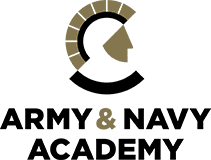It’s never too early to teach financial literacy to your kids. Read here to learn more ways to teach your kids the importance of saving money and other important financial habits.
 Financial literacy for high school students should actually begin in childhood at home, but it is also critical to learn lessons during elementary, middle and high school. As more private schools incorporate lessons into subjects like math, economics, leadership training, and life skill programs, we are helping our children move toward adulthood with a sense of independence and confidence. You can make a big difference at home, so here are some tips to increase financial literacy.
Financial literacy for high school students should actually begin in childhood at home, but it is also critical to learn lessons during elementary, middle and high school. As more private schools incorporate lessons into subjects like math, economics, leadership training, and life skill programs, we are helping our children move toward adulthood with a sense of independence and confidence. You can make a big difference at home, so here are some tips to increase financial literacy.
Ways to Increase Financial Literacy
Financial Literacy Fundamentals:
- Share Digital Practices – In today’s world, high school students really need to learn how to use debit cards before they head off to college. Given that most transactions are handled digitally, it is imperative that high school students learn financial literacy basics, such as: how to check an account balance, track expenses, and how to avoid charges and overdraft fees.
- Establish a Checking Account Early in Life – Setting up a checking account in high school is an important process as it teaches teens basic banking practices. They will learn how to make deposits, withdrawals, get cash at ATMS, and work within their account balances. When they head off to college, they will feel ready to handle money responsibly.
- Establish a Savings Account – Teaching kids about money involves learning how to save. It is essential and sets your child up for success later in life to buy a car, home, and address unexpected expenses.
- Show Kids How to Build Credit – Understanding how to build credit and analyze FICO scores will be essential to their well-being as your children become adults. They will quickly see how important it is to act responsibly if they apply for a credit card. They will learn to pay bills on time, avoid overuse of credit cards, and pay the full balance off monthly.
- Teach Teenagers How to Invest – When high school students become financially literate, they should know about the various types of investments and receive some training at home under close parental supervision. Investments may include: stocks, bonds, money markets, certificates of deposit, real estate, college funds, retirement funds, and business investments. It is recommended that you share your strategies and tactics. Explain specific concepts like compound interest and show how money grows over time through wise investing.
Shopping Smart:
- Teach Kids about Money at the Grocery Store – As groceries have risen in cost, along with healthcare, it is important to show your children how smart grocery shopping is essential. Not only will they learn to compare prices and cut coupons, they will make healthier choices to curtail healthcare expenses.
- Train your Teen to Think about Major Transactions. Consider expenses such as: purchasing a home, car, and other major expenses. Teens can learn important lessons by going out with their parents to learn how to check their FICO score, apply for credit, and even learn some of the complexities of the mortgage loan and escrow process.
- Engage your Child in Private School Decisions – Why not engage them in everything from school research to tuition reviews, and financial aid applications? Financial literacy helps kids place a high value on their private education, set goals for secondary school, as well as prepare for college choices. Teach them how to evaluate private day and boarding schools as you check their college matriculation and other educational returns on investment.
- Show your Teen how to Manage Travel and Entertainment – Even at a young age, children can easily learn how to help plan a trip within a family budget. Children and teens can participate in finding destinations, researching hotels, comparing airfare costs, and planning for excursions and restaurants. At restaurants, don’t forget to have your kids help you calculate tips so they practice doing percentages in their heads!
- Help your Kids Learn how to Save Money for the Unexpected – This is all part of financial literacy for kids. Help your children learn about how to save for major repairs like house painting, new roof, bathroom and kitchen remodels, landscaping and other home related expenses. They can learn how to do research, find the best service providers, compare quotes, and learn how to save money for these kinds of major expenses.
Making Wise Life Decisions:
- Choose a School that Offers Financial Literacy – When checking out private schools, ask the school if they offer any lessons or programs related to financial literacy. For example, Army & Navy Academy, a day and boarding school for boys, grades 7-12 in California offers Leadership Education Training (LET) classes. A number of lessons are focused on financial literacy topics, as well as life and career-related skills. Students can even get a jumpstart on high paying careers through their electives, including: computer science, aviation, cyber security, video production, and game development.
- Encourage Your Teen to Get a Job – There is no better way to learn about money than early employment experiences. Whether it is part-time or full-time summer employment, teens can benefit from receiving a paycheck and seeing just how far their money goes. It really reinforces the value of money and how to use it wisely.
- Cultivate Enterprise and Entrepreneurship – Beginning at an early age, almost every kid can benefit from a lemonade stand, babysitting, pet sitting, mowing lawns or other income producing activities. Selling Girl Scout cookies, crafts at Christmas time, or setting up an online business can begin at almost any age. Gen Z loves to learn how to translate interests into career or business pursuits, so take advantage of this opportunity to help your child get a jumpstart on business lessons.
- Engage Your Teen in College Planning – Learning about 529 College Funds, FAFSA, and college planning services is key for juniors and seniors in high school. Some private schools even offer college planning services at no extra charge as part of their services. This is fairly common at boarding schools, where trained school counselors offer workshops and personalized sessions to help high school students choose colleges, complete college applications, prepare essays and recommendations, do exam prep, and fill out forms for financial aid.
How to Share Simple Money Saving Habits with Children
- Capture Teachable Moments – There are so many moments when you can include children and teenagers in financial transactions and saving habits, everything from grocery store shopping, personal ad household expenditures, private school financial aid,, car purchases, restaurant tips, and much more. Look for opportunities to include your children in the financial processes related to various transactions by putting math lessons to work!
- Help Kids Figure Out Household Expenses – To prepare kids to save and later pay for household expenses in adulthood (e.g. rent, mortgage, car loan, phone, internet, utilities, waste management, yard maintenance), it is important for them to develop an awareness of all of the possible expenses that come from living independently. Share info about expenses, so they develop a broader understanding.
- Support their Management of Income and Expenses – At any age, children and teens can learn about income and expenses. This is a simple concept of analyzing their allowances or job earnings against current or future expenses. It will also help reinforce saving habits. If you are a business owner, you could also share your profit and loss statements with your teen to further elevate this understanding.
- Share Family Goals and Priorities – Children and teens can easily understand the importance of setting goals and determining levels of priority to save for purchases. They will learn to weigh what is important, how to save for larger purchases, and move toward important life goals (e.g. boarding school tuition, buying their first car, saving for college).
- Involve Children in Saving for College – Beginning to prepare early for college really pays off if you begin savings early on. Although you may plan to apply for aid through FAFSA and start a 529 College Fund for your child, there is no reason why children and teens cannot participate. Perhaps, they can allocate a percentage of summer earnings towards college expenses or set up a separate savings account. This will give them a sense of control and also help alleviate stress often associated with college costs.
- Encourage Impulse Control – Delayed gratification is important so that kids learn how to differentiate between wants and needs. By training your children to think through purchases and/or creating a savings plan for larger purchases, you are helping them learn how to set purchase goals, establish priorities, and work within their budget.
- Provide Positive Modeling – If you want your child to be prepared for life and learn how to save, then a core understanding of economics, the stock market, and global issues can broaden and pique higher interest in their own finances. When kids see the macro picture of money and how it works in countries, cities, and within their own family, they can then translate those financial lessons to their own individual finances. Support a growth mindset.
By engaging your child from an early age about money, they move from childhood to adulthood in a more seamless way. To avoid children living at home when you are in your senior years, it is very important to help kids become independent before they head off to college. Communicate your expectations for their launch and help them develop financial literacy at home and in school. It will not only pay off for them, but for you too! To learn more about Army and Navy Academy, contact us today!


